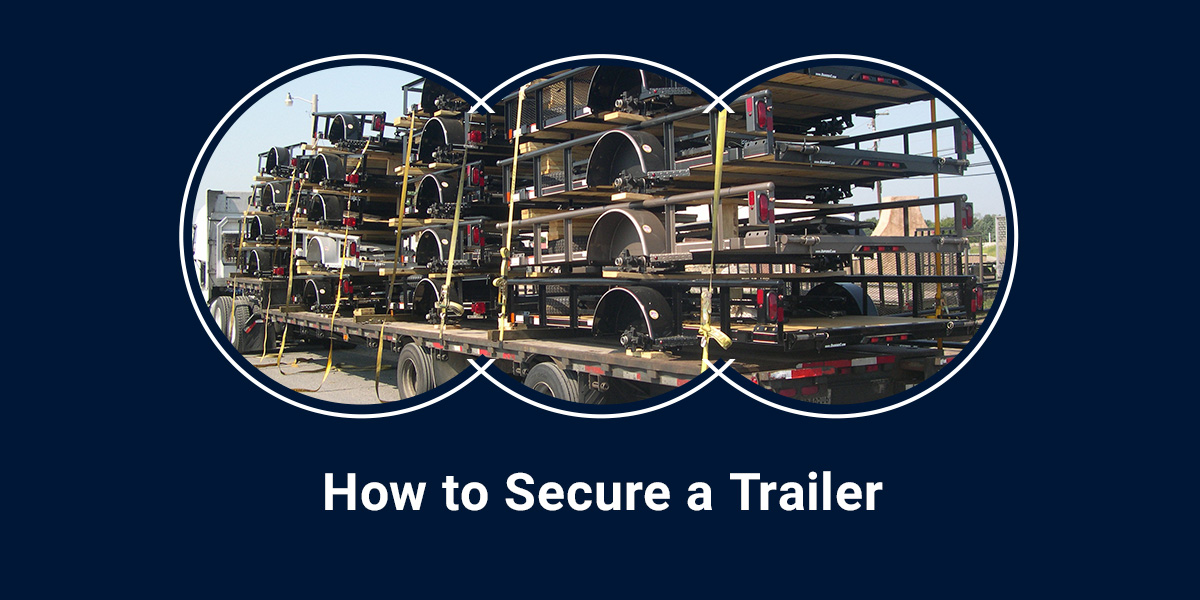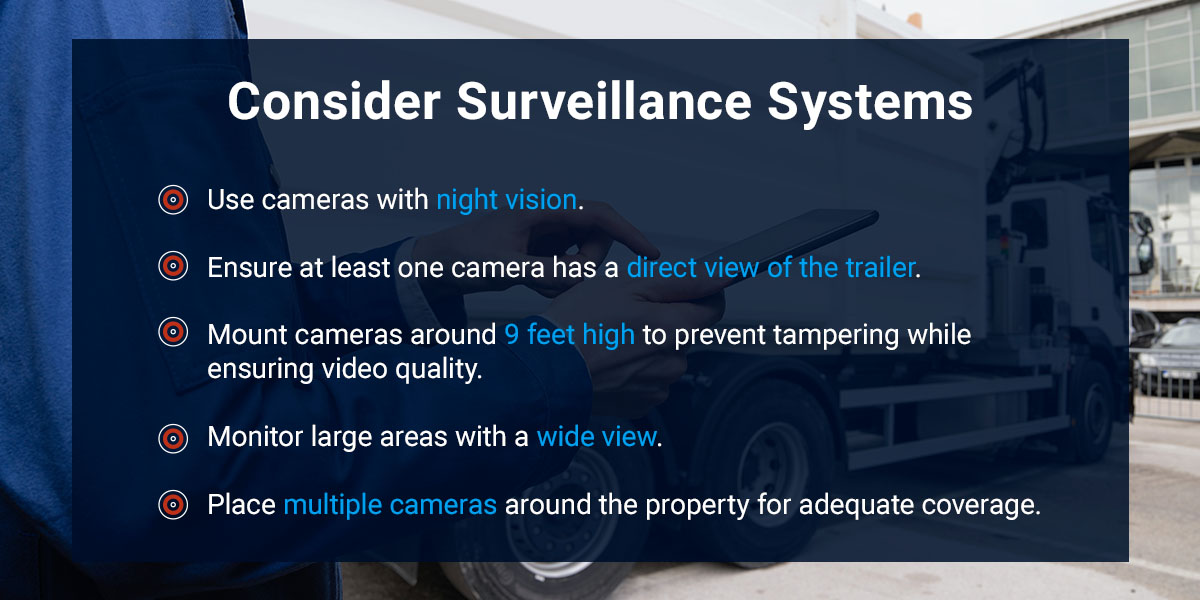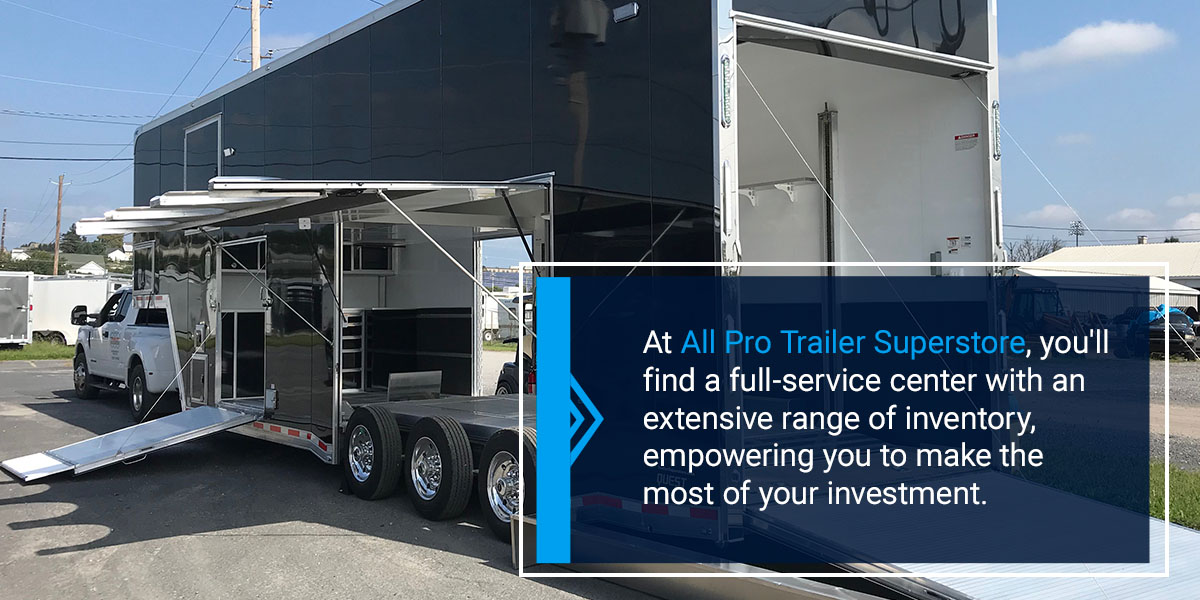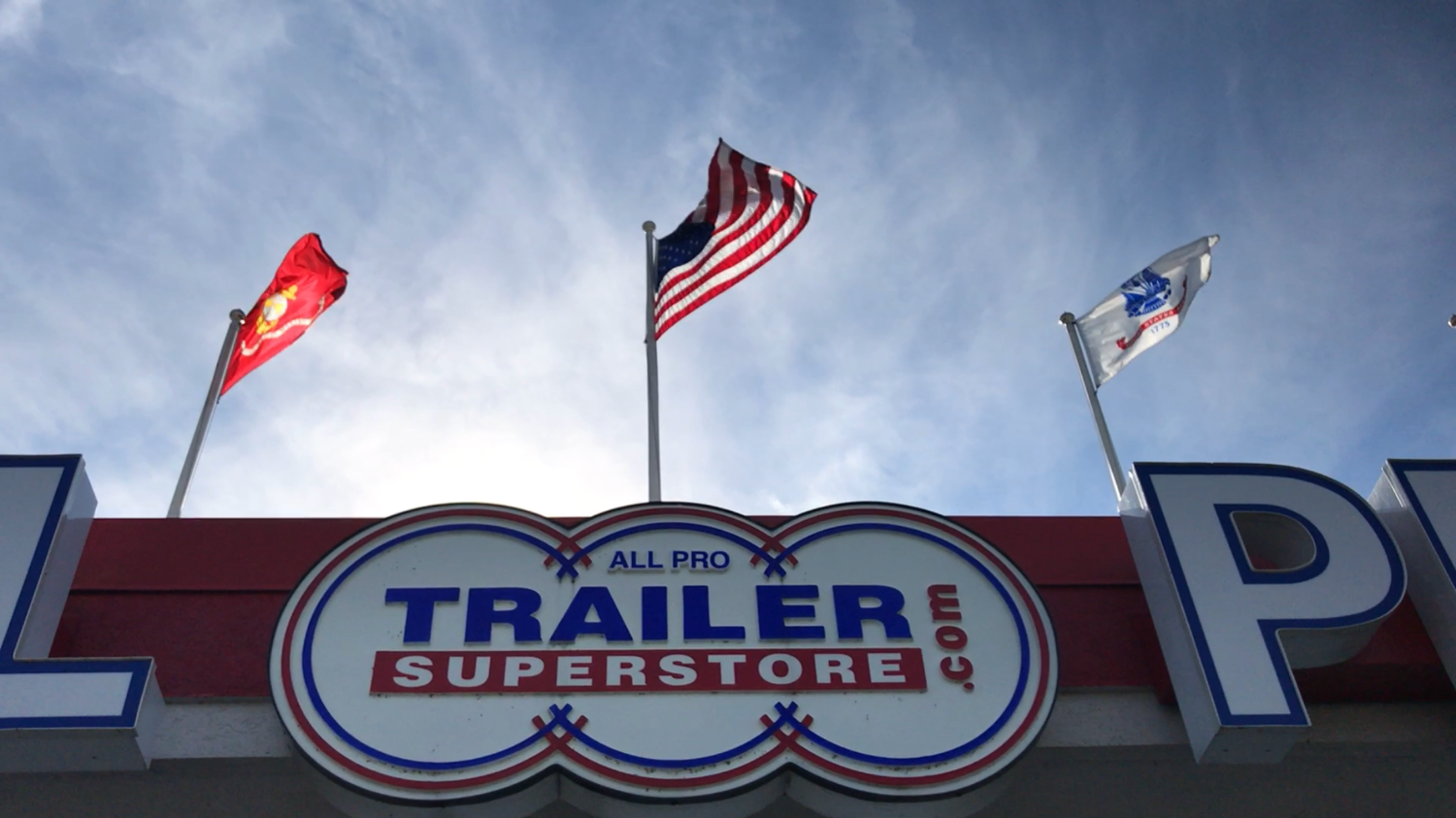How to Secure a Trailer
Jun 25, 2024Last Updated on February 12, 2025 by Matthew Sholly
Last Updated on February 12, 2025 by allprotrailersuperstore
Your trailer and anything you store on it are significant investments. Protecting your items from vandalism or theft is surprisingly simple, and plenty of strategies can ensure their security.
Whether you need a quick solution for traveling in a new area or want long-term solutions when you’re not using your trailer, we’ve got you covered. Discover seven ways to enhance trailer security and keep your items safe.
1. Use High-Quality Locks
High-quality locks are one of the best ways to prevent trailer theft and keep your items secure. Several locks and trailer accessories are available, including hitch locks, wheel locks and coupler locks. You can choose one lock or use multiple for enhanced security, as different types lock onto different areas of the trailer.
A nonsecure hitch allows someone to easily remove the pin and connect your trailer to another vehicle. Hitch locks latch onto the ball mount to keep the hitch pin in place, preventing anyone from removing the hitch.
A wheel lock, or chock lock, prevents your trailer from rolling by attaching to the wheel. Along with preventing anyone from driving away with your trailer, this lock helps keep your trailer secure in uneven terrain.
Coupler locks, also known as tongue locks, attach to the trailer’s coupler. When this lock plugs the coupler, the trailer becomes inoperable. These are the best trailer locks to use when your trailer is not connected to your vehicle and, therefore, is most vulnerable. Choose a tool-resistant tongue lock for maximum security.
2. Install a GPS Tracker
A GPS tracker for trailers can help you quickly recover your trailer if someone manages to move it. Though these devices don’t deter criminals from taking your items, they can help you recover your stolen property and identify the person responsible. You can easily install these devices on your trailer to acquire real-time access to its location. If someone nabs your property, you can share the trailer’s location with law enforcement for a speedy recovery.
You can find a variety of trackers for your trailer, from hardwired to battery-powered options, to suit your needs and budget. For maximum security, consider hiding several types of trackers throughout the trailer. This way, you can have multiple verification points and feel confident that other trackers will continue working if one loses life or a thief finds and removes one when inspecting your trailer.
3. Choose a Secure Parking Spot
When traveling or searching for long-term parking solutions, it’s important to consider several aspects. If you’re leaving the trailer in a nontraditional parking area, look for ways to block others from accessing your trailer. For instance, you can position the hitch to face a wall or use your vehicle to block the trailer. If you have another vehicle to block the other sides or back end of the trailer, do so.
If you’re parking in a commercial space, choose one with adequate security features. Even small features can significantly impact deterrence. Look for parking locations with these features:
- Good, consistent lighting
- A fenced property
- High traffic
- Limited access areas or access control measures
- Adequate visibility
- Emergency response systems
4. Engrave VIN Information
Your VIN is a 17-digit code providing information about your trailer’s manufacturer, make and similar details. This data is crucial when registering your trailer and comes in handy when you need to replace or repair components.
Although you’ll often find this number at the attachment point, you can etch it into multiple surfaces for enhanced security. Engraving the VIN into your trailer can deter thieves, as these vehicles can be more recognizable and increase the chances of the thief getting caught with your property.
Additionally, permanent markings are challenging to remove, making the trailer harder to resell illegally. These elements can make the process overly difficult for a thief, causing them to look elsewhere for an easier target. You can also use VIN scanners to identify the location of a stolen trailer if someone does make off with your property.
5. Consider Surveillance Systems
When weighing long-term solutions, surveillance systems are an excellent investment. Everything from motion sensor lights to property alarm systems to security cameras can deter criminal activity and identify helpful information for retrieving stolen property.
While placement strategies can vary depending on your location and security system, you can follow these tips for general strategic placement:
- Use cameras with night vision.
- Ensure at least one camera has a direct view of the trailer.
- Mount cameras around 9 feet high to prevent tampering while ensuring video quality.
- Monitor large areas with a wide view.
- Place multiple cameras around the property for adequate coverage.
6. Install Alarms
Alarm systems can quickly alert you if someone tampers with your property. Shrill alarms can scare away criminals, deterring them from doing significant damage. Additionally, with quick notice of an issue, you can promptly investigate the problem and alert authorities. That way, you can minimize damage and increase your chances of catching the criminal before they can steal anything.
At the very least, alarms can alert others in the area of an issue. They can increase the likelihood that someone catches a glimpse of the thief, the direction they moved and what they did to your property so you can address concerns quickly.
7. Add Unique Colors or Markings
Like a VIN, bright and obvious permanent markings are an excellent deterrent. Florescent paint, business logos and other unique patterns can make your trailer more noticeable than others. These markings can make it harder for a criminal to resell. They can also help authorities identify your trailer if someone tries to drive away with it.
Bright colors and memorable markings can turn heads, increasing the chances that passersby see the trailer moving past them and provide more information for you to find and retrieve your stolen property.
What to Do if Your Trailer Is Damaged
Ultimately, any security measure you take acts as a deterrent. Unfortunately, if someone really wants to do damage or get into your trailer, they’ll find a way, even with your best efforts in place.
Although these tips can enhance your security, you should know what to do if your trailer ever experiences damage. Whether you have a damaged trailer or want to prepare for each possible scenario, there are a few things to keep in mind. Follow these steps to address a damaged trailer:
- Inspect and document damages: When it’s safe to evaluate damage, check every side of your trailer and document any adverse changes. Take pictures for further documentation.
- Check your insurance: Contact your insurance company as soon as possible. Inform them about the damage and give them any details you can. You may also need to contact the authorities if you have information to identify the perpetrator or need help recovering stolen property.
- Request repair services: Lastly, address any damage as quickly as possible. Small damages can cause significant issues over time, and professional repairs will ensure you receive the necessary parts, advice and experience.
Request Trailer Services From All Pro Trailer Superstore
When you need trailer services, you’ll want a professional team with the experience and tools to address your concerns. At All Pro Trailer Superstore, you’ll find a full-service center with an extensive range of inventory, empowering you to make the most of your investment.
Whether you need trailer repairs to address damages, want to customize a trailer to your exact needs or want to find discount trailer deals, we’ve got you covered.





